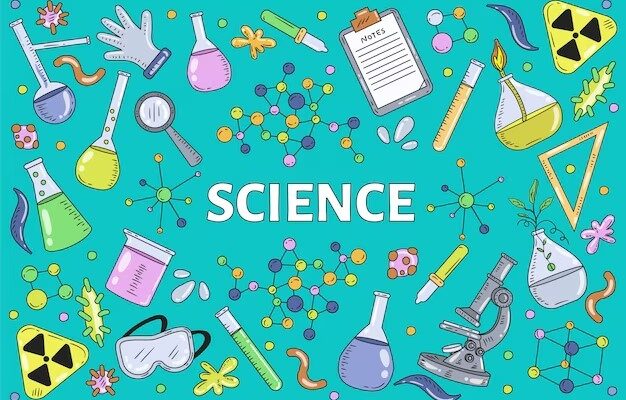Courses in science at the college level offer special difficulties. Often the complexity of topics like physics, chemistry, and biology overwhelms students. Adopting good study techniques is therefore absolutely vital since these subjects call for both conceptual knowledge and technical detail. This guide aims to provide research-backed strategies that enable students to properly negotiate the complexity of scientific topics, so offering practical actions to optimize knowledge and memory.
Knowing Why College Science Subjects Seem Overwhelming
Understanding the complex ideas of quantum mechanics in physics or remembering the Krebs cycle in biology, for instance, can be difficult. Using a college notes website helps to arrange information, therefore facilitating long-term knowledge retention and study. Effectively managing the load calls for an emphasis on dividing subjects into smaller, digestible pieces and using techniques that support long-term retention.
Scientific Language
The complicated scientific vocabulary is among the most important obstacles students have in learning scientific subjects. Often, this technical language seems like a whole new language. Students can develop a tailored glossary or flashcards to help them remember and fight this. Consistent review of these words will help students to internalize the language of science, so facilitating their understanding of challenging content.
Proven Study Techniques Designed for Difficult Scientific Topics
Employ active recall
Active recall is a study strategy whereby students actively attempt to remember knowledge instead of passively going over it. Studies indicate that testing oneself increases retention and clarifies knowledge. When addressing difficult scientific subjects, such as remembering important biological processes or solving chemistry problems, this approach is particularly helpful. Whether physical or via applications like Anki, flashcards and other tools can assist in this process.
Long-Term Retention by Spaced Repetition
Spaced repetition is the practice of reviewing information at rising intervals to promote memory retention over time. Subjects that need memorization, like chemical equations or biological processes, are best suited for this approach. Students can transfer information from short-term to long-term memory by spacing out review sessions. A study plan including this approach will enable students to keep important ideas for tests and beyond.
Visualizing Strategies
Mastering difficult scientific subjects using visualization is quite potent. Students can improve their understanding and recall of complex systems like the human circulatory system or the mechanics of chemical reactions by drawing diagrams, concept maps, or flowcharts. Students can design and arrange these pictures using tools like Lucidchart or Coggle, therefore enhancing their usefulness as study tools.
Instructing the Content
The Feynman Method teaches you about the subject matter by having you teach it to another person or perhaps an imaginary audience. Students sometimes find knowledge gaps by means of their explanations of difficult subjects to others. This approach is particularly effective for scientific disciplines where knowing the basic ideas is essential for appreciating more advanced content.
Interleaved Topic Across Subjects
Interleaving is the practice of studying several subjects in one sitting instead of concentrating on one for a long period. Studies have revealed that by encouraging deeper understanding, interleaving helps students remember information more effectively. For instance, pupils might combine their physics, chemistry, and biology courses to link ideas across disciplines.
Using Online and Campus Resources
Going to Study Groups and Office Hours
Mastering scientific subjects depends on maximizing office hours and study groups. Students can arrive ready with particular conceptual questions, so guaranteeing that these classes are fruitful. Often, cooperative learning clarifies challenging ideas and offers a new angle on how to tackle complicated content.
Applying Online Courses and Tutorials
Online tools such as YouTube, Khan Academy, or MIT OpenCourseWare can be quite helpful when more support is required. These platforms let students revisit difficult content at their own speed and offer visual reinforcement and alternative explanations that enhance conventional classroom education.
Digital Tools for Science Learners
Many digital technologies can improve scientific research. While equation solvers like Wolfram Alpha assist students solve challenging problems, lab simulators such as Labster can offer virtual environment hands-on practice. Furthermore, Notability and other scientific student-oriented note-taking tools can assist in organizing and storing significant formulas and diagrams.
Efficiency Time
Creating a Weekly Science Study Schedule
Mastering scientific subjects depends on a well-organized study strategy. Focusing on both lecture material and textbook readings, students should set aside particular time slots for each subject. The following is a suggested study timetable:
| Day | Subject | Focus | Time | Technique Used |
| Monday | Biology | Cell Biology | 2 hours | Active Recall |
| Tuesday | Chemistry | Organic Chemistry | 2 hours | Spaced Repetition |
| Wednesday | Physics | Newton’s Laws | 2 hours | Visualization |
Using the Pomodoro Method
Usually 25 minutes, the Pomodoro Technique calls for concentrated work in intervals followed by a brief break. Science students working on problem sets or extensive reading assignments will find this method to be quite effective. During rigorous study periods, it helps to keep focus and avoid burnout.
Mistakes to Avoid When Studying Science: Cramming Before Exams
- Overlooking basic subjects
- Learning by rote
- Steering clear of practice questions
- Skipping visual tools and diagrams
Changing Study Techniques for Certain Scientific Disciplines
Life science
Because biology calls for much memorization, active recall and visualization are absolutely vital. Diagrams will help to grasp intricate processes; using apps like Quizlet will improve memorization.
Chemical science
For chemistry, problem-solving and conceptual mapping are key. To develop a deeper knowledge, students should routinely practice chemical equations and reaction routes.
Physics calls for both idea and problem-solving practice. Solving practical physics issues and diagrams help to support knowledge and application of theoretical ideas.
Developing a Long-Term Mindset for Scientific Education
Monitoring Progress Over Time
Consistent progress and avoidance of burnout depend on regular review. Students can monitor their knowledge and find areas for development by means of journals or self-tests.
Developing Interest and Drive
Linking scientific subjects to practical examples can ignite interest and boost internal drive. Students’ learning becomes more interesting and relevant when they are driven by a desire to understand how science influences their life.
Conclusion
Mastering science calls for a mix of the correct tactics, tenacity, and active learning. Students can change the way they approach difficult scientific subjects by experimenting with various study strategies and developing a mindset oriented on long-term knowledge.



